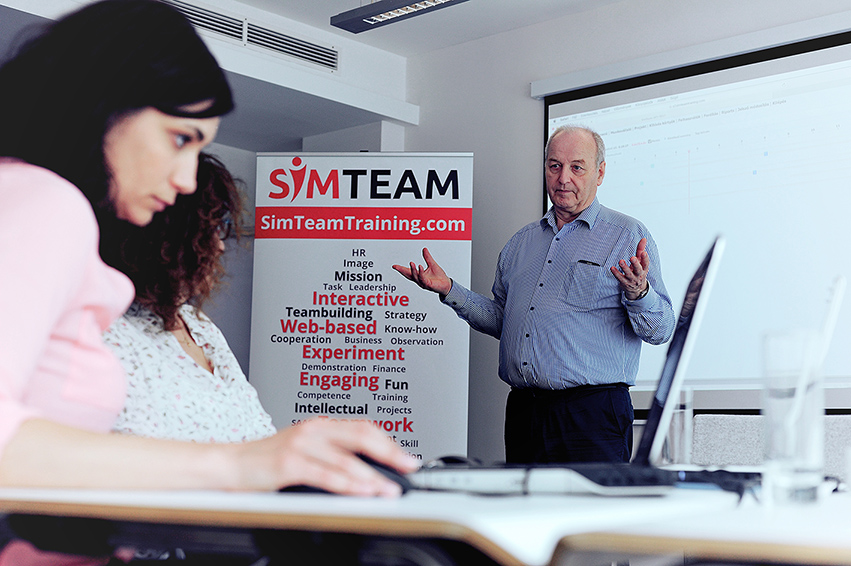How can you use an Online Business simulation during the course?
The prime reason for using the simulation is to exercise the new knowledge presented on the course. Simulations enhance the learning process.
Unlike lectures, where it is difficult to reflect and still listen to the lecturer, simulations provide opportunities for reflection with participants moving in and out of the discussion as required.
Simulations are motivational events and participants are very involved in the process. This is because participants usually see simulations as competitions. This motivates in-depth discussion among them, ensuring deep processing and therefore assimilation.
Studies show that different learning approaches have different retention rates with practice by doing (through simulation) delivering a seventy-five percent retention rate. ("Learning pyramid" - Motorola University: Creating Mindware for the 21st Century, Corporate University Xchange May/June 1996, Vol 2 No 3.). Simulations can be used to "revitalise" and motivate the group. This will also have a positive effect on the participants’ absorption of knowledge.
Simulations can help linking theory with practice: the theoretical content must be complemented by sessions where participants test their skills.
When combined with traditional learning methods, business games increase efficiency of learning and help students make the connection between theoretical knowledge and professional challenges they will face in the real business world. Participants can experience the decision-making role of managers. As participants make actual business decisions and deal with the consequences of their mistakes, their knowledge retention increases exponentially.

About SimTeam simulation
SimTeam is a business simulation platform that models the operation of project-based enterprises. During the simulation participants form teams representing different model corporations. The participants act in different managerial roles inside the model corporations. The software simulates a competitive market where the model companies compete. In the course of the contest the participants learn how to formulate a corporate strategy and how to create an effective and efficient organisation to achieve their strategic goals.
SimTeam has automated financial functionalities (general ledger; balance sheet, profit and loss account, cash flow overview) according to generally accepted accounting rules.
Each team operates a model corporation, where this they will face immense market driven (external) challenges (which vary in the different case studies) and operational challenges arising from their available manpower and their cash flow situation. The trainer can assign individual missions and personal goals to the participants based on their managerial role in the simulated organisation. These individual missions and goals can be conflicting, which could lead to arguments among the team members similarly to a real life change management situation.
The trainer can also provide exercises for the teams (e.g. review and present strategy) in the course of the simulation.
Using case studies during the simulation
During the training, the trainers can use different case studies. Case studies are precisely constructed educational programs with specific initial conditions, scripted market events, and defined goals for the participants.
Case studies can be tailored to fit the goals of the training and the number of participants. Teams usually form their virtual company’s strategy and make decisions in teams of 4 or 5 persons, but in certain scenarios they can also cooperate with other teams, building a greater discussion among participants, thus further stimulating interpersonal communication and making decision making even more complex.
You can choose from an ever growing variety of case studies, depending on your training purposes (short or long training, focus topic). You can choose from short and log simulation programs, or select a simulation where market trends change and participants need to adjust their strategies accordingly.









